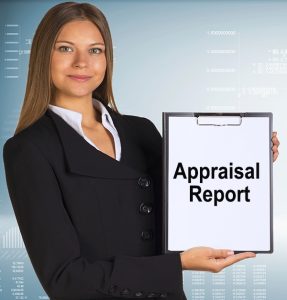Selling a Professional Practice
30 October 2023: Selling a Professional Practice
Selling a professional practice is not a whole lot different from selling most any other business – the occasional protestations to the contrary raised by some “professional practitioners”. I make that statement after recently reading a law journal article on precisely this subject.
The three primary points made in that article are the same as three of the primary points made often in this blog over the years. To wit:
__________________________________________________________________________________
November’s event schedule on The Brokers Roundtable℠ is being finalized this week and will be published no later than Wednesday, 1 November in the Announcements space.
If you’re not a member of The Brokers Roundtable℠, you can find out what benefits membership includes and join here.
___________________________________________________________________________________
Additional points the article covers have also been covered in our many jeremiads on the topic:
- Determining how much of the practice (if less than all) the seller wishes to sell
- Letters of Intent
- Review of agreements such as any leases or other contracts that could impact the sale.
Here is a synopsis.
The Team
 The lawyers suggest assembling the troops two years before actually pulling the proverbial trigger and they believe the members should include a lawyer, accountant, banker, practice valuation specialist, and mentor who has been through the experience.
The lawyers suggest assembling the troops two years before actually pulling the proverbial trigger and they believe the members should include a lawyer, accountant, banker, practice valuation specialist, and mentor who has been through the experience.
The only nit we’d pick with this list is the inclusion of a “mentor”. Instead, we’d suggest a professional business broker with experience in the sale of professional practices
This is not to downplay the importance of someone who has been through the process as a seller. But such a mentor can speak only to his or her own experience. A professional business broker is likely to have seen far more ways of structuring a deal, far more problems that have had to be overcome and expose the practice to far more potential buyers.
__________________________________________________________________________________
Courses! Courses! Courses!
Many of you have asked if our Flagship Course, “Learn How to Value and SUCCESSFULLY Sell Businesses“, could be made available on a module-by-module basis. Instead of enrolling in the complete course, could you enroll only in the module you wanted? We’re happy to report that this is now possible.
We’ve broken our Flagship into six separate modules (or module groups) to give you all the flexibility you need to learn only what you want to learn – and we’ve moved them all over to the new Brokers Academy in The Brokers Roundtable℠ . The Flagship is still available but the modules are now available individually.
You don’t need to be a Member of The Brokers Roundtable℠ to access any of these courses but if you are, you’ll receive a 20% discount on any course you enroll in. If you’re not a member of The Brokers Roundtable℠, you can join here.
___________________________________________________________________________________
However, there’s a caveat to our advice and that is, if the buyer is an existing partner in the practice, a broker becomes less critical provided that all the other professionals are part of the team.
Know What the Practice is Worth
The importance of knowing the value of any business – whether it’s a small manufacturer, an IT company, a healthcare provider or a professional practice – is arguably the most critical aspect of selling.
As we’ve written ad nauseum, knowing what your business or practice is worth dramatically increases the likelihood of selling it and decreases the likelihood of under-pricing it.
 There are many ways to establish a business’ or professional practice’s value including determining the practice’s EBITDA (earnings before interest, taxes, depreciation and amortization), net income, market value of the tangible assets (real estate, equipment, supplies, product inventory, accounts receivable. etc.) and intangible assets such as client list, patient medical records, an experienced staff, reputation, business name and location, its social media presence and internet URL, etc.
There are many ways to establish a business’ or professional practice’s value including determining the practice’s EBITDA (earnings before interest, taxes, depreciation and amortization), net income, market value of the tangible assets (real estate, equipment, supplies, product inventory, accounts receivable. etc.) and intangible assets such as client list, patient medical records, an experienced staff, reputation, business name and location, its social media presence and internet URL, etc.
But in our experience, the most important number is what we refer to as the business’ or practice’s Discretionary Earnings (“DE”), sometimes referred to as Seller Discretionary Earnings (“SDE”). DE is the answer to the question asked most by buyers: “How much will this practice put in my pocket?”
Price It Right
Just because you have arrived at a value doesn’t mean you’ve arrived at a price.
Most buyers will expect that they can get a better price if they negotiate – which means that sellers need to prepare themselves for such negotiation.
If the value of the practice is what the seller wants to get – the Target Price – the asking price must be higher so that the seller has some “room to move” (with apologies to John Mayall). We generally suggest to our clients that a “negotiating premium” of 10%-15% (depending on the market, the business, the availability of financing, etc.) be applied to the Target Price before coming to market.
 However, if the sale is to a partner or valued employee, the best way to arrive at a sale price would have the buyer and seller agree to accept a valuation using some defined method that would virtually eliminate the need for negotiation. This might include the parties agreeing to accept a valuation arrived at by a specific practice appraiser approved by both parties. Another option is that the parties each appoint an appraiser and agree to accept a number that is the average of the two results.
However, if the sale is to a partner or valued employee, the best way to arrive at a sale price would have the buyer and seller agree to accept a valuation using some defined method that would virtually eliminate the need for negotiation. This might include the parties agreeing to accept a valuation arrived at by a specific practice appraiser approved by both parties. Another option is that the parties each appoint an appraiser and agree to accept a number that is the average of the two results.
But what if the results are far apart?
We suggest that, if there’s more than a 10% difference in the results of the two appraisers, the parties agree beforehand that the appraisers will jointly appoint a third appraiser and that this third appraiser’s conclusion is the final number.
All the Rest
The members of the Team will be instrumental in the remaining issues raised in the law journal article:
- Determining how much of the practice (if less than all) the seller wishes to sell. Taking on a partner – either an outsider or a valued employee – has its own set of issues and challenges but the legal member of the team should be able to handle this.
- Letters of Intent. Likewise with the LOI, a step meant to solidify the parties’ agreement with the salient terms of the sale. There’s no reason to incur legal fees to develop final documents until the major transaction points are agreed to.
- Review of agreements such as any leases or other contracts that could impact the sale. For example, a lease for the practices premises or equipment may have a change-of-ownership restriction. Vendor and client agreements may also be impacted by a change of ownership. Have counsel review all agreements to which the practice is a party before the start of discussions with a potential buyer.
_____________________________________________________________________________________
Our course, “Learn How to Value and SUCCESSFULLY Sell Businesses“, teaches you how to accurately value and successfully sell businesses.
The Bottom Line
Selling a professional practice is generally similar to selling any other business with three notable exceptions.
- Professional practices generally have a much more limited and narrow band of buyers – though they are much easier to define and identify.
- The buyer of most professional practices is likely known to the seller as a partner, employee or local member of the same profession.
- The requirement of a special license of certification
Because of those three points, selling a professional practice is often easier than selling a general business and will generally be concluded in much less time. But to do so successfully, planning ahead and following the process must be done.
I’d like to hear from you. What topics would you like me to cover? How can we tailor these posts to be more useful to you and your business. Let me know in the comments box, below, or email me at
jo*@Wo*******************.com
.
If you have any questions or comments on this topic – or any topic related to business – I’d like to hear from you. Put them in the comments box below. Start the conversation and I’ll get back to you with answers or my own comments. If I get enough on one topic, I’ll address them in a future post or podcast.
I’ll be back with you again next Monday. In the meantime, I hope you have a safe and profitable week.
Joe
Searching For…
NOTE TO READERS: Our “Searching For…” feature has been moved to our online community, The Brokers Roundtable℠. It will appear there exclusively from now on.

#business #businessacquisition #sellabusiness #becomeabusinessbroker #businessbrokering #businessvaluation #MergersandAcquisitions #buyabusiness #sellabusiness #realtor #realestateagents
The author is the founder, in 2001, of Worldwide Business Brokers and holds a certification from the International Business Brokers Association (IBBA) as a Certified Business Intermediary (CBI) of which there are fewer than 600 in the world. He can be reached at
jo*@Wo*******************.com
